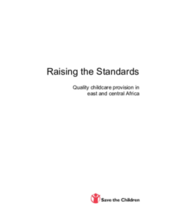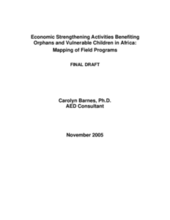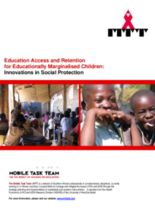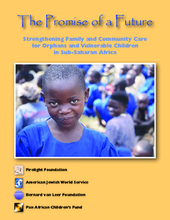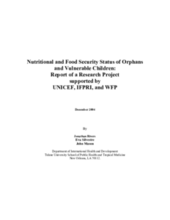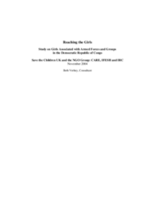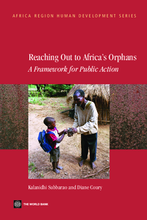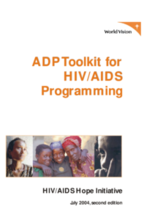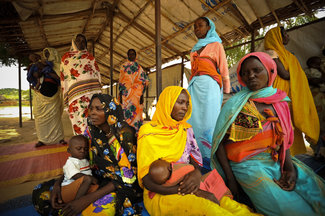

Displaying 191 - 200 of 218
A guideline to establish and promote good practice in a variety of childcare settings through the application of quality indicators. The indicators address professional practice, quality of care, caregivers, resources and administration.
This paper identifies programs in sub-Saharan Africa focused on economic strengthening interventions, and analyzes their approaches and impact on orphans and vulnerable children. Interventions focused on savings and lending groups, micro-leasing, market linkages and household gardening appear to be particularly effective.
This paper provides a comprehensive contextual overview of the educational challenges faced by orphans and vulnerable children in sub-Saharan Africa. It includes recommendations for future education policy in the context of HIV and AIDS, as well as provides country specific data on current policies and social protection programs.
A brief document advocating for the strengthening and support of community based responses to children and families affected by HIV/AIDS in Africa.
A study on the experiences of girl soldiers in Angola before, during and after their participation in armed conflict. Includes recommendations for gender-specific responses.
A report on the nutritional status of orphans in sub-Saharan Africa. Seeks to understand the relationship between child vulnerability and food security. Contains conclusions and recommendations relevant for future monitoring initiatives.
Studies the disproportionately low access of girls to formal DDR mechanisms in the Democratic Republic of Congo. Recommendations emphasize community-based approaches designed to specifically reach and support girls associated with armed groups.
A detailed book providing evidence-based guidelines for approaches and interventions to best mitigate the various risks confronted by OVC.
Toolkit for the founding and expansion of HIV/AIDS responses in development programs. Includes hands-on tools and support documentation.
Discusses the interplay between informal and formal safety net mechanisms in supporting orphans and children made vulnerable by HIV/AIDS. Includes recommendations for strengthening traditional family and community safety nets weakened by the epidemic.

